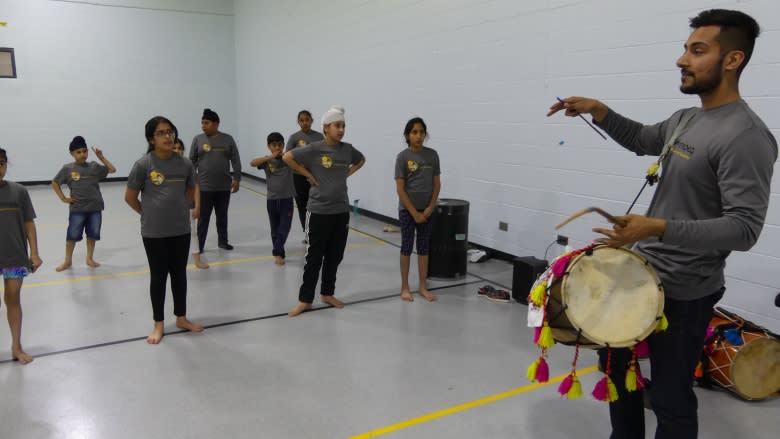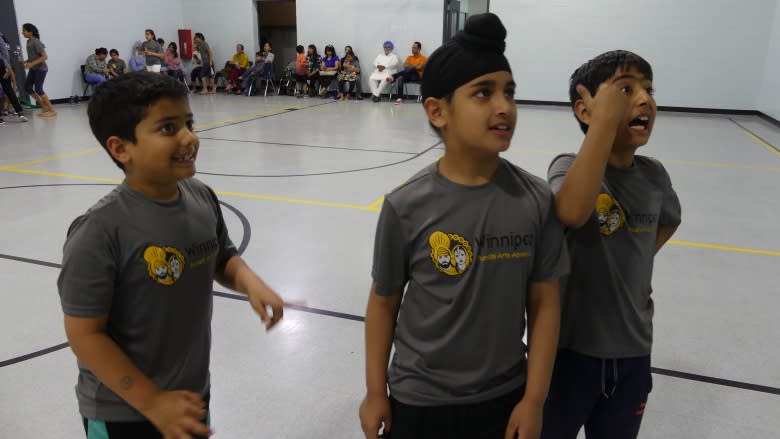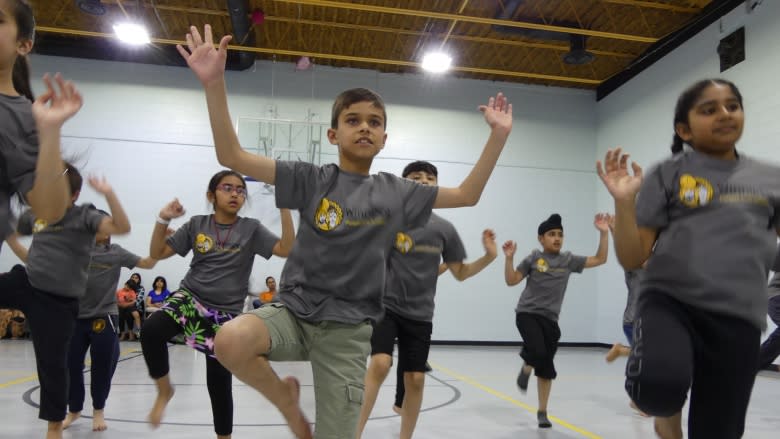Winnipeg bhangra teacher 'mesmerized' by excitement of students learning about Punjabi culture through dance
If not for bhangra, Ranveer Brar may never have truly embraced his Punjabi heritage.
"It was something that I was kind of almost embarrassed about and kind of shy," says Brar, who now teaches bhangra — a type of folk dance which originated in India's Punjab region — to youngsters in Winnipeg.
Brar learned bhangra through Indian dance coaches while he was living in Abbotsford, B.C. Along the way, he also became fluent in the Punjabi language and connected on a deeper level with his Punjabi culture and heritage, replacing his embarrassment with pride. That was over 15 years ago.
Now he's passing on his knowledge and passion for bhangra and Punjabi culture to the next generation of aspiring dancers — even though he was born in Winnipeg.
"I think people are taken aback that I'm born here [in Canada]. They ask me, 'How did you learn?'"
Brar, 29, is a full-time master's student at the University of Manitoba and a part-time dance instructor at the Winnipeg Punjabi Arts Academy. He started the academy, which now has about 70 students and holds classes at the Leila North Community School, in March 2016. Some students even go on to compete at bhangra dance competitions across North America.
'Powerful, very energetic dance'
Traditionally danced to the beat of a dhol — a Punjabi drum — modern sounds and music are gaining popularity among young bhangra dancers these days. The dance form has gained widespread popularity in North America and around the world.
Here in Canada, for example, the Maritime Bhangra Group in Nova Scotia has had a series of viral hits with their videos, which have racked up millions of views.
"It's a very powerful, very energetic dance," said Brar. "We're doing jumps, we're doing squats. It's about expressions as well. You have to be smiling, you have to be showing how much fun you're having."
He says bhangra has allowed his students to build their confidence, and to take pride in themselves and their Indian identity.
"It just makes me feel happy," said 12-year-old Anandita Sharma, who studies bhangra dance at the academy.
"Whenever we have a party and there's dancing, all my relatives are like, 'Wow, she knows how to do that?' And to my dad, they just go up to him and say, 'That's your daughter?'"
Connecting to culture
For seven-year-old Aryan Kaushal, bhangra is a family affair. It's a chance to learn about his Indian roots alongside his parents.
"My mom and my dad wanted me to do it because they know it, and they want me to know it. And soon my sister's going to go," says Kaushal.
His father, Raj Kaushal, had trouble himself balancing his traditional heritage with his Canadian identity.
"I was born and raised here in Canada myself," said Raj. "I was not really in touch with my roots."
But just like Brar, Raj Kaushal was able to learn about Punjabi culture through bhangra dancing and music. He hopes his kids will do the same.
"For my kids I wanted to showcase what Punjabi and Indian culture is all about. What better way to do it than through song and dance?" said Kaushal.
"Now they want to learn the language, they want to eat the foods. My son loves it."
Although the time spent teaching bhangra and dhol while pursuing a master's degree has been a challenge for Brar, he says it's been an immensely rewarding experience.
"Seeing how excited they've gotten over the last year and half about bhangra, I've just been mesmerized."





